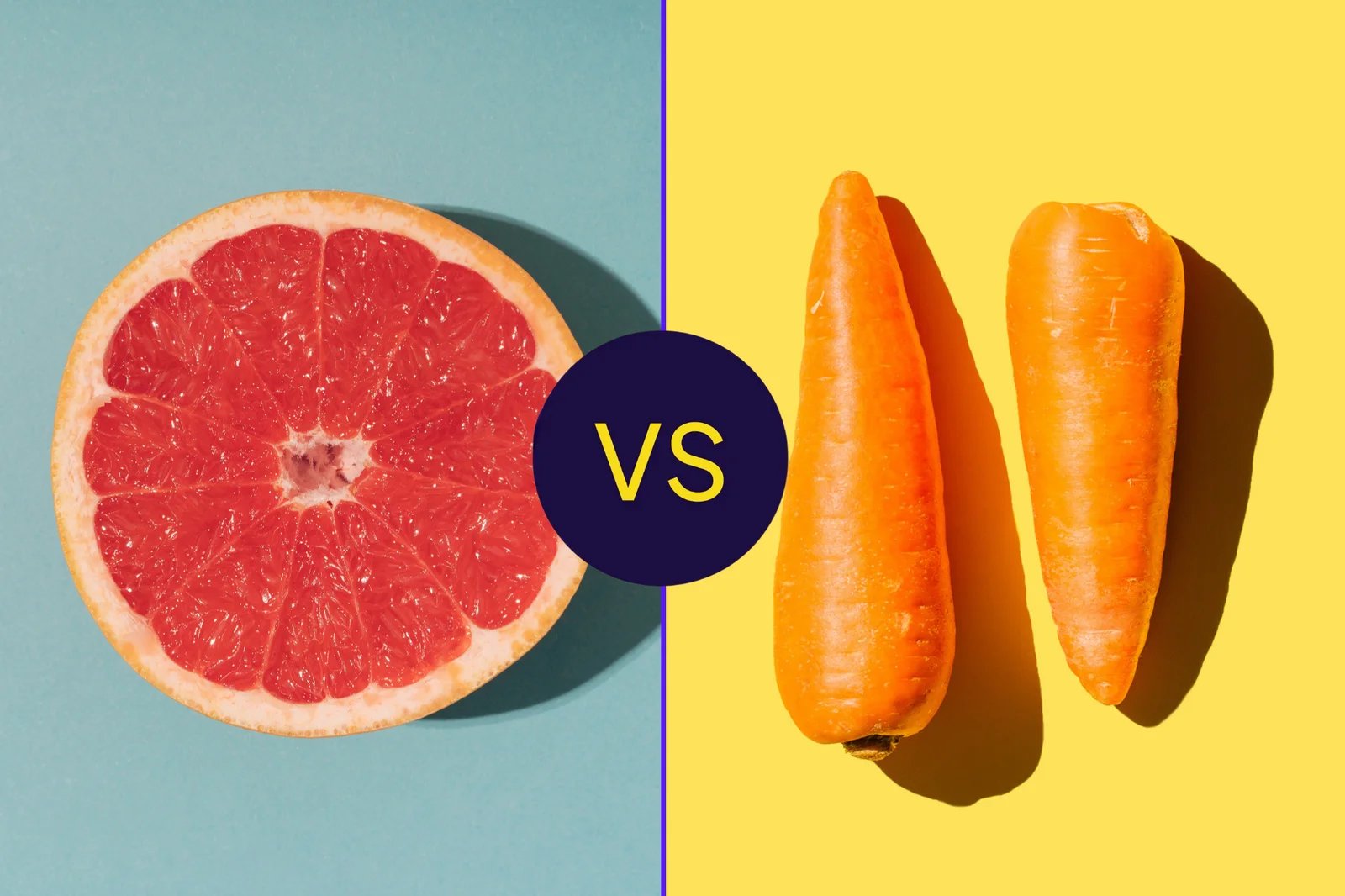Fruits and vegetables are equally nutritious, but they have several key differences as plants, in cooking, and in their nutritional content.
and و in و Fruits – تفاصيل مهمة
The main distinction between fruits and vegetables as plants is that fruits contain seeds and vegetables do not. Fruits come from the flowers of plants, while vegetables are the other edible parts, like the roots, leaves, and stems. For instance, the edible part of a carrot is the root.
When it comes to flavor, fruits tend to be sweet or tart, while vegetables are typically savory.
In some cases, foods that are technically fruits are actually considered vegetables in the kitchen. For example, tomatoes, avocadosand cucumbers are technically fruits because they have seeds. But those fruits are often thought of as vegetables for cooking purposes. They are not sweet or tart, and they are usually eaten with other vegetables.
are و fruits و vegetables – تفاصيل مهمة
Fruits and vegetables are both nutritious. They’re packed with vitamins, minerals, water, and fiber while also being low in calories and fat. But they have some key nutritional differences:
- Sugar:In general, fruits are higher in sugar than vegetables. Natural sugar in fruit is generally considered healthy. Natural sugar content may be a concern for people who manage their sugar intake, such as those with diabetes.
- Calories:Fruits also tend to have calories than vegetables due to their higher sugar content.
- Starch:Some vegetables, like potatoes and corn, contain higher levels of starchwhich is a type of complex carb. People who limit their sugar intake may also want to manage their consumption of starchy vegetables.
It’s a tie. Despite some nutritional differences, you need both fruits and vegetables in your diet. If you only ate fruits, you would miss out on key nutrients like vitamin K and A. If you only ate vegetables, you wouldn’t consume as much vitamin C and antioxidants. Overall, both fruits and vegetables are essential for your health.
and و sugar و you – تفاصيل مهمة
The essential nutrients in fruits and vegetables benefit your health in many ways, including:
- Heart health:A diet full of fruits and vegetables can lower your risk of cardiovascular diseases, such as high blood pressureheart attack, and stroke.
- Immune system support:The essential nutrients in fruits and vegetables support your body’s defenses against infections, mainly by decreasing inflammation in your body.
- Cancer prevention:Eating plenty of fruits and vegetables promotes an overall healthy diet, protecting your body from certain cancers.
- Brain health:Nutrients from fruits and vegetables support your mental health and keep your brain sharp as you age.
The U.S. Department of Agriculture recommends that adults ages 19 and older consume about the following amounts of fruits and vegetables every day:
and و your و fruits – تفاصيل مهمة
- Women:1.5-2 cups of fruit and 2-3 cups of vegetables
- Men:2-2.5 cups of fruit and 3-4 cups of vegetables
However, the vast majority of people in the United States do not meet these daily recommendations.
Here are some simple ways to eat fruits and vegetables:
- Incorporate them into breakfast:Add leftover broccoli to an omelet, top your cereal with strawberries, or mix berries, banana, and spinach into a smoothie.
- Spruce up your lunches:Vary the fruits and vegetables in your salads by trying different lettuce bases or tossing in seasonal fruits. Add lettuce, tomato, and onion to your sandwiches for volume and crunch.
- Swap your snacks:Instead of snacking on processed foods like chips, try eating whole fruits or vegetables. Applesoranges, and bananas make great snacks on the go, and carrots and hummus pair perfectly for a filling snack.
- Keep fruit on hand:Stock a bowl with your favorite fruits on your kitchen counter. Place a bowl of washed berries at the front of your fridge, too, so it’s the first thing you see when you open the refrigerator door.
- Use dried and frozen fruits and vegetables:Dried and frozen produce are just as healthy as fresh fruits and vegetables, and they’re often cheaper and convenient. Add raisins to trail mix and dried unsweetened cranberries to salads. Frozen produce also makes a great addition to smoothies.
- Cook vegetables for quick meals and dinner sides:Whip up a stir fry with carrots, green beans, and mushrooms for a simple dinner. Roast root vegetables like potatoes and parsnips for an easy side dish.
- Add fruit to dinner:Chop up tropical fruit like mangos and pineapples to add to a salsa appetizer, or top proteins like chicken and fish with a fruit-based sauce.
and و your و to – تفاصيل مهمة
Disclaimer: This news article has been republished exactly as it appeared on its original source, without any modification.
We do not take any responsibility for its content, which remains solely the responsibility of the original publisher.
Author:Isabel Vasquez RD LDN
Published on:2025-11-10 01:05:00
Source: www.health.com
Disclaimer: This news article has been republished exactly as it appeared on its original source, without any modification.
We do not take any responsibility for its content, which remains solely the responsibility of the original publisher.
Author: uaetodaynews
Published on: 2025-11-09 21:07:00
Source: uaetodaynews.com
